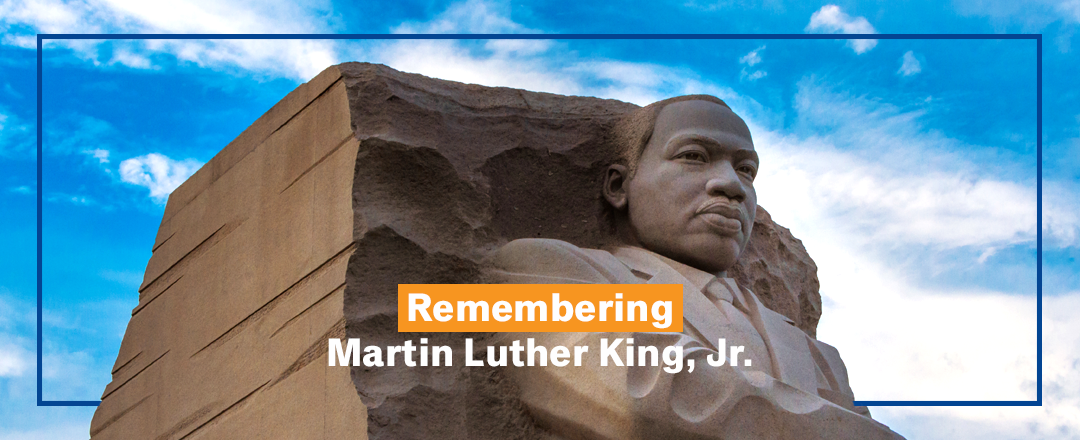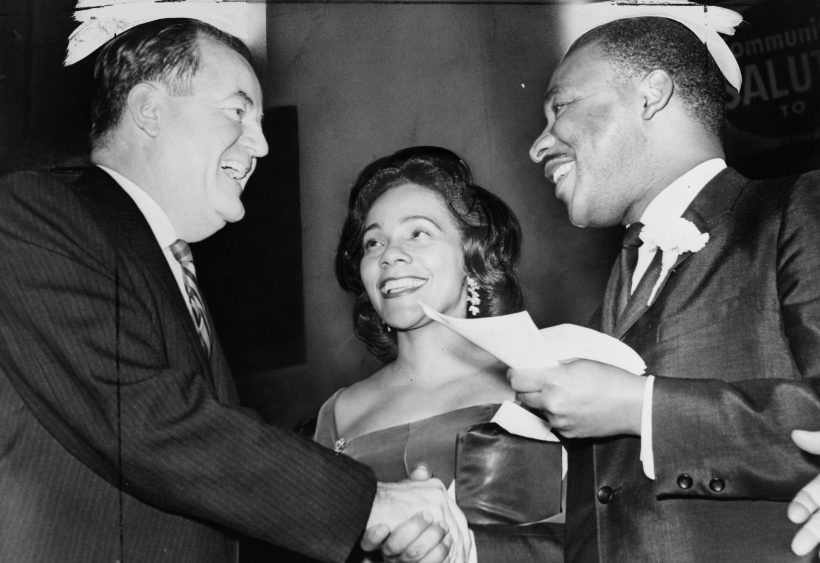Martin Luther King, Jr. was a social activist and Baptist minister who played an integral part in the American Civil Rights Movement. Born in Atlanta, Georgia on January 15th, 1929, MLK Jr. was known for his non-violent tactics and fight for equality and human rights.
In 1983, President Ronald Reagan deemed the third Monday of January to be Martin Luther King, Jr. Day. To commemorate this historical holiday and the life of MLK Jr., we chose to highlight some of the most influential moments as he fought for justice until his untimely assassination in 1968.

Original Caption: 12/21/1956-Montgomery, AL: Rosa Parks, 43, sits in the front of a city bus here Dec. 21 as a Supreme Court ruling which banned segregation on the city’s public transit vehicles took effect. Mrs. Parks’ arrest on Dec. 1, 1955, for sitting in a bus forward of white passengers, touched off the boycott of Montgomery Negroes against the city’s bus lines.
Montgomery Bus Boycott
In December 1955, Rosa Parks refused to give up her seat on the bus to a white man and was subsequently arrested for violating Jim Crow laws. The incident led to the Montgomery Bus Boycott, which lasted 385 days and secured MLK Jr.’s role as a leader of the civil rights movement. In November 1956, the United States Supreme Court ruled segregated seating on public buses unconstitutional.
Letter from Birmingham Jail
Boycotts, sit-ins, and marches to protest segregation, unfair hiring practices, and other injustices were part of the Birmingham campaign of 1963. MLK Jr. was arrested for his role in the activities and penned a letter from jail addressing criticism against him from Alabama clergymen. This historic written response is known as the Letter from Birmingham Jail.
March on Washington
Working hand in hand with civil rights and religious groups, MLK Jr. organized the March on Washington for Jobs and Freedom. A peaceful political rally that shed light on the injustices African Americans continued to face across the country, this event included the famous “I Have a Dream” speech, recited by MLK Jr. at the steps of the Lincoln Memorial. More than 250,000 demonstrators attended the rally.
Nobel Peace Prize
In 1964, Martin Luther King, Jr. became the youngest winner of the Nobel Peace Prize since the prize was first awarded. At the time, he was 35 years old. His work toward eliminating racial injustice and promoting human rights is still felt today.
For more information on the Civil Rights Movement, check out our five-day Civil Rights in the South tour.
Sources: The Nobel Prize: Martin Luther King Jr. Biography; The King Center: About Dr. King; Britannica: Martin Luther King, Jr.




